Grammar
Present tense
Use the present tense to describe what is happening right now, what you do regularly or what you do in an ongoing situation.

Future tense
Conveying the future in German can be done in several ways - by using werden, by combining the present tense with future time phrases, or by using phrases like ich hoffe, ich plane zu, ich habe vor.

Perfect tense
The perfect tense is used to discuss regular events in the past. Learn how to form the perfect tense using the auxiliary verbs haben and sein together with regular and irregular past participles.

Imperfect tense
The imperfect tense is used to describe a particular event in the past, which no longer has a link to the present. Itãs mainly used to write reports, articles or novels.
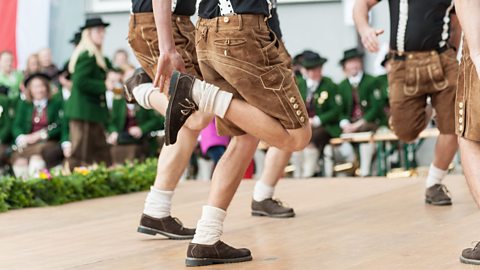
Conditional tense
The conditional tense allows you to express imaginative ideas about what might, would, could and should happen in the future. It's a great way to describe your wildest dreams and fantasies.

Modal verbs
Modal verbs are very useful in German. They help you talk about what you have to do, want to do or are allowed to do and can be used in the present, past and conditional tenses.

Negatives
Negative words are used in different settings in German. Learn how to place nicht in a sentence, how to use kein correctly and get to grips with negative words such as wederãÎ nochãÎ, doch and nie.
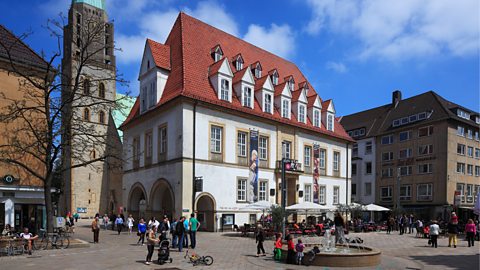
Infinitive constructions
Short sentences and clauses can be linked using infinitive constructions, like um...zu..., ohne...zu... and anstatt...zu... to make your level of German more complex.

Word order
German word order can seem complicated, but there are set rules. If you learn the rules and follow them, your German will be much more accurate.

Nouns
A noun is a word used for a person, creature, place or thing. All German nouns have genders. Verbs and adjectives can become nouns too. Compound nouns are also a fun feature of the language.

Pronouns
Understanding how to use pronouns in place of nouns, and which case to put them in, will enable you to add variety to your German and will help you to communicate more effectively.

Numbers
Practise understanding and giving information about numbers in German, including ordinal and cardinal numbers, as well as telling the time.

Adjectives and adverbs
Using adjectives, adverbs, comparisons and superlatives accurately will enhance both your writing and speaking. Mastering them successfully helps you to use descriptive language in a variety of ways.

Cases
In order to be able to write accurately in German, itãs important to recognise and understand the four different cases: nominative, accusative, dative and genitive.

Prepositions
Prepositions describe where something is in relation to something else. In German, the preposition used affects the case of the word it describes. The sentence's meaning depends on getting this right.
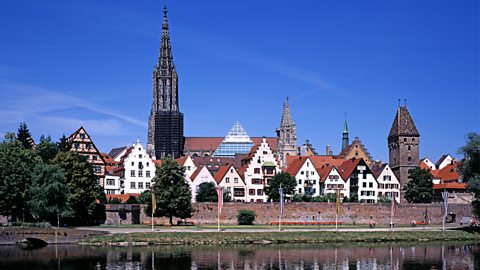
Conjunctions
It is useful to be able to produce more complex sentences by using a conjunction. Coordinating and subordinating conjunctions used correctly will enhance your German.
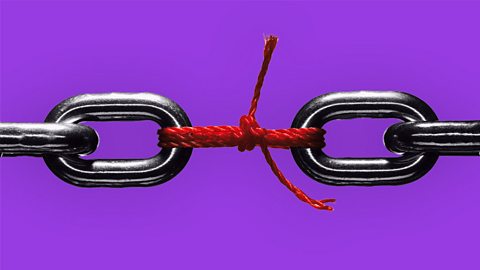
Video playlist
Buying a rucksack. Video
A brief introduction to a department store in Germany.

Stolpersteine. Video
'Stolpersteine' are placed in pavements to honour the Jews lost during Nazi times.

Word Order. Video
An animated clip in which a grumpy director helps an actor understand German word order.

Prepositions. Video
An animated clip about an actor who's grappling with German prepositions.

Nouns. Video
An animated clip in which a film director corrects an actor's use of German nouns.

Munich's outdoor living rooms. Video
During the summer in Munich, whole families flock to one of the city's 180 beergardens.
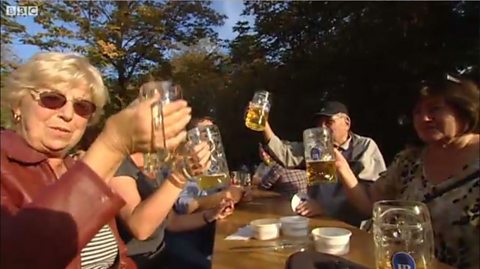
Mein Kampf. Video
Reactions to the controversial reprinting of Hitler's Mein Kampf.

Sundays in Germany. Video
Sunday is considered to be a day of rest in Germany, whether people are religious or not.

Links
- External linkExternal link
- External linkExternal link
- SubscriptionSubscription
- External linkExternal link
- External linkExternal link